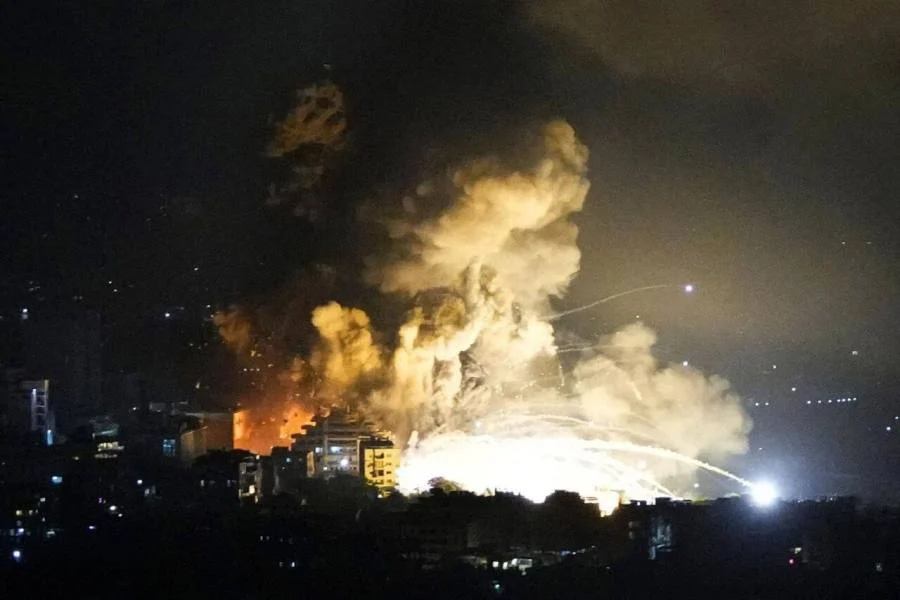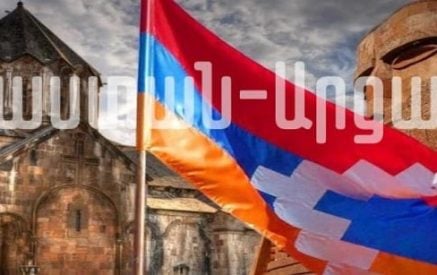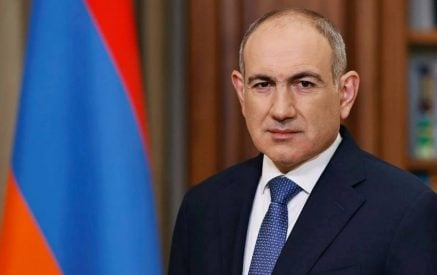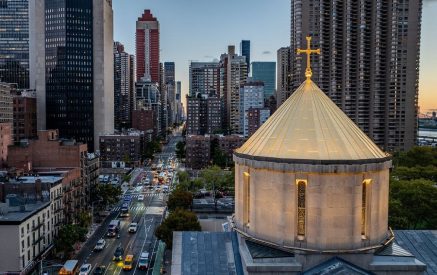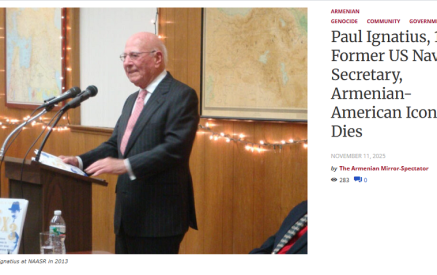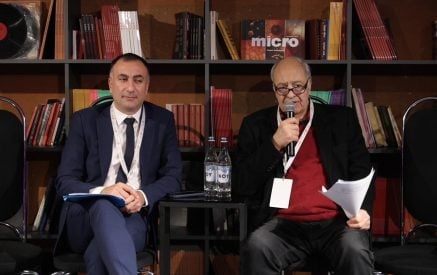Part One
Israel recently killed Sheikh Hassan Nasrallah, the leader of the Hezbollah movement. Israel today knows all the movements, hideouts, secret tactics, weapon caches, Hezbollah seems to have lost 90% of its strength, the military gap looks huge, and while over 1000 Lebanese are being martyred, the Shiites are in the streets. without shelter…
I see many political analysts in the Republic of Armenia are trying to interpret the new Lebanese-Israeli war. I think that even at the international level, the Lebanese history has not been deeply understood, and the media only analyzes it based on superficial but established principles, which are dominant but inaccurate, and actually contradictory. There are Many factors that led to this situation
The main culprit of this situation is actually the Lebanese political structure and equation, which has given fertile ground to every regional and international power to distort the Lebanese tragedy. Each, based on their own interests, represented Lebanon from the point of view of one conflicting side, and there are plenty of conflicting sides. It is impossible to explain the Lebanese crisis by going back 10 or 20 years. The reason for all this confusion is that until now the conflicting Lebanese religious and political/ideological forces have not decided the national identity, goals and nature of this small country.
Read also
Lebanon gained its independence in 1943. It consisted of 17 religious groups, Christians made up about 50% of the country, and the other 50% were 4 Muslim groups: the Muslim Shia and Sunni majority, and the Druze and Alawi minorities.
Lebanon operated with a religious community constitution and mechanism. only a Christian Maronite (the largest Christian religious group) could become the president of the country, the commander of the army, as well as the head of the Central Bank. Only a Sunni Muslim could become Prime Minister, and only a Shia Muslim could become Speaker of the Parliament. At that time, 52% of the parliament consisted of Christians and 48% of Muslims.
The struggle for identity soon began when Abdel Nasser became the president of Egypt and called for a united Arab state and nationalism. Syria and Egypt formed a united state, Lebanese Muslims called for unification, especially the Sunnis, as well as the Lebanese left, led by Druze leader Kamal Jumblatt.
The Lebanese Christian right, the “Kataeb” party, or in other words the “Lebanese Phalanxes”, was in favor of Lebanon’s independence, not only from the West, but also from Syria, and was against “pan-Arabism”. In 1958, the Lebanese left started a revolution, the President of Lebanon, Kamil Chamoun, invited the USA Marines to intervene, and everything calmed down temporarily.
And Lebanon had not learned its lesson…
A few years later, Palestinian armed groups based in Jordan (Muslim Sunni) threatened the Jordanian regime. The King of Jordan, a true statesman, took decisive action and the Jordanian army bombarded the Palestinian guerrilla groups, declaring that the army would not stop until they left the country.
I have two homelands: Armenia and Lebanon, and I must also say that Israel is an ally of Azerbaijan and has armed it with modern weapons, which were used against Armenian soldiers in Artsakh, and the enemy of Lebanon… Israel occupied Palestine. The Palestinian armed groups had to leave Jordan, and Lebanon made a historical mistake that led to its eternal tragedies, and what is happening in Lebanon today is a direct result of what happened that day. Lebanon agreed to host them in response to the Arab League’s request, as Lebanon is a founding member of the Arab League.
When they arrived, they disrespected the Lebanese state and sovereignty, launched guerilla attacks on occupied Palestine from southern Lebanon, Israel retaliated, and Lebanon entered a decades-long calvary era. The Palestinians did not respect their host country, ignored it, and now they have become more cunning. what they did not find in Jordan, sympathetic local allies, they found in Lebanon, with the Lebanese left.
Lebanon was internally divided, with the Lebanese leftist leader Kamal Junblatt the strongest figure in the Muslim camp, despite belonging to the Druze minority. He considered the constitution an obstacle to his becoming president. He was a charismatic and highly educated leader, Muslims demanded more power and accused Christians of monopolizing political, economic and social power.
Palestinian leader Yasser Arafat took advantage of this, and the Lebanese Christian right demanded that the Palestinians stop endangering Lebanon.
Lebanon’s left and Muslims turned it into a deep political crisis, accusing the Lebanese right of being an “isolationist force” “who want to isolate Lebanon from the Arab cause.” Arafat had found what he lacked in Jordan, a local ally. In Lebanon, Palestinian sympathizers began to demand giving Palestinians total freedom to “liberate Palestine from southern Lebanon.” The Palestinians escalated the situation and got out of control both inside Lebanon and in the south, the Lebanese army did not intervene. The prime minister, Rashid Karameh, a Sunni Muslim, made the excuse that if the army intervened, it would split and that Muslim soldiers would desert the army.
And the Lebanese right had no other choice but to arm themselves, especially when the Lebanese state signed the “Cairo Agreement” with the Palestinian Liberation Organization (PLO), in which they compromised their sovereignty and statehood and agreed that the Palestinians were free to carry out their guerrilla activities. carry out operations in occupied Palestine. The Lebanese Civil War began because Muslim forces preferred to ally with the Palestinians against the Lebanese Christian Right.
Syria watched silently; the Christians were defeated. 90% of Lebanon was under the control of the leftist/Palestinian alliance, and the Christians faced imminent decisive defeat.
An Armenian proverb says: “When you drown, you embrace a snake.” At the same time, the Arab League sent forces to disperse the militants, including Syrian brigades, but the Arab forces were not decisive or effective, they became “peaceful reconciliation forces”.
Syrian President Hafez Assad had other plans. He always considered Lebanon to be part of Syria, which is why he never established diplomatic ties with Lebanon, and while Junblatt and Arafat were preparing for a decisive victory that would prevent Syrian intervention, the Syrian army entered Lebanon and crushed the Left-Palestinian Alliance.
Naturally, the Lebanese right was reservedly and cautiously pleased. But everything changed, although the Syrian army ensured peace, but only temporarily.
A few years later, Egyptian President Anwar Sadat went to Camp David and signed an armistice with Israel, leaving Syria alone in the fight against Israel. But not only was Syria isolated, another major player was deeply negatively affected by Camp David: Yasser Arafat.
And here, Hafez Asad informed the Christian leaders of the “Lebanese Front” that he will no longer restrain the PLO in Lebanon (Kamal Junblatt was killed, most likely, by the Asad regime – B.M.).
Syrian ambitions became evident in Lebanon, Assad now allied with Arafat and began to provoke the Lebanese army and the Christian right-wing armed group, the Lebanese Forces. Syrian troops in Lebanon were theoretically placed under the command of Lebanese President Elias Sargis, a naive claim.
In 1978, the Syrians bombed the Christian areas, and under pressure from the West, they left the Christian areas. Kamal Jabr’s son allied with Assad, and Lebanon entered a stalemate.
A few years later, Israel entered Lebanon, the number one Christian leader, Bachir Gemayel, was elected president, Bachir refused to sign a “Peace Treaty” with Israel. He was martyred before entering the presidential palace as a result of a terrorist explosion.
And during this confusion, the “Hezbollah” movement was created in Lebanon, according to many political analysts and reports – it was formed by Iran’s interior minister Mohtashami.
Under Syrian supervision and dominance, Sunni forces were crushed by pro-Syrian Druze and Shiite forces.
Syrian opportunism was at its peak, Syrian troops and their allies bombed Yasser Arafat’s PLO troops in the northern Lebanese city of Tripoli, his Shiite allies (Amal movement – Hezbollah’s rival, now an affiliate follower) besieged the Palestinian camps for 100 days, but could not defeat them.
Bedros-Manoukian
Lebanese Armenian Blogger




















































